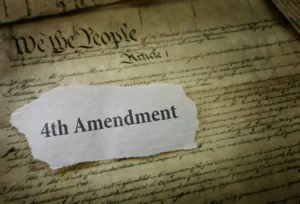These versatile aerial platforms, many equipped with advanced technology and capable of navigating challenging environments, have become indispensable tools for modern law enforcement agencies.
Key Applications of Drones in Law Enforcement
Drones have proven their effectiveness in a wide range of law enforcement applications, including:
Enhanced Situational Awareness: Drones provide real-time aerial surveillance of crime scenes, public gatherings, and areas of interest, enabling officers to make informed decisions quickly and effectively. This aerial perspective offers valuable insights into developing situations, potential threats, and crowd dynamics and converting information to intelligence.
Improved Crime Scene Investigation: Drones offer a unique perspective for capturing high-resolution images and videos from angles that are difficult or impossible to obtain using ground-based cameras. This detailed imagery aids in evidence collection, scene reconstruction, and the identification of potential suspects or witnesses. sUAS’ also provide the ability to employ LiDAR and photogrammetry which approximates a three-dimensional (3D) structure using two dimensional images.
Effective Search and Rescue Operations: Drones can cover vast areas quickly and efficiently, assisting in locating lost persons, fugitives, or evidence. Their ability to operate in low-visibility conditions and navigate challenging environments makes them invaluable for search and rescue missions.
Streamlined Traffic Monitoring and Incident Response: Drones provide real-time traffic monitoring, allowing officers to identify potential congestion points and make informed decisions to manage traffic flow. During accidents or emergencies, drones provide aerial support, assisting in incident response and traffic management.
Expanded Surveillance Capabilities: Drones offer discreet surveillance of areas of interest, aiding in crime prevention and suspect identification. Their ability to operate at high altitudes and remain undetected for extended periods makes them ideal for covert surveillance operations.
Public Safety and Event Security: Drones provide aerial security during large-scale events, ensuring crowd safety, monitoring for potential disturbances, and assisting in emergency response.
Disaster Response and Emergency Management: Drones aid in disaster response efforts by providing aerial assessments of damage, identifying survivors, and assisting in search and rescue operations.
Evidence Retrieval and Delivery: Drones can be used to retrieve evidence from crime scenes or deliver essential items to remote locations, reducing risks to officers and minimizing disruptions.
Challenges and Considerations for Drone Usage
While drones offer a wealth of benefits, their integration into law enforcement practices raises certain challenges and considerations:
- Privacy Concerns: The use of drones raises privacy concerns, as they can potentially collect sensitive personal information without the knowledge or consent of individuals. Law enforcement agencies must establish strict guidelines and procedures to protect individual privacy rights and ensure that drone usage adheres to legal and ethical principles.
- Regulatory Compliance: Law enforcement agencies must adhere to air traffic regulations and obtain necessary permits for drone operation. This includes ensuring that drone flights are conducted in a safe and responsible manner, avoiding interference with other aircraft and complying with airspace restrictions.
- Training and Certification: Proper training and certification are essential for law enforcement officers to operate drones safely and effectively. This training should cover topics such as drone piloting skills, airspace regulations, data collection and privacy protocols, and ethical considerations.
- Public Perception and Acceptance: Public perception and acceptance of drone usage in law enforcement play a crucial role in its successful implementation. Law enforcement agencies must engage in transparent communication and community outreach efforts to address concerns and build public trust.
Future Advancements in Drone Technology for Law Enforcement
As drone technology continues to evolve, we can expect even more innovative applications that will further transform policing in the years to come. Some potential advancements include:
- Artificial Intelligence (AI) integration: AI-powered drones could autonomously analyze real-time data, identify potential threats, and provide alerts to officers.
- Advanced sensor technology: Drones equipped with more sophisticated sensors could detect contraband, hazardous materials, and even biological agents.
- Enhanced communication capabilities: Drones could serve as communication relays, extending the reach of law enforcement networks and providing real-time connectivity in remote areas.
- Hybrid drone-officer collaboration: Law enforcement officers could work in tandem with drones, utilizing their unique perspectives and capabilities to enhance situational awareness and decision-making.
Conclusion
Drones have undoubtedly revolutionized law enforcement, providing officers with unprecedented capabilities and enhancing public safety. As drone technology continues to evolve, we can expect even more innovative applications that will further transform policing in the years to come. However, it is crucial to ensure that drone usage is responsible, ethical, and compliant with legal and privacy considerations. By balancing the benefits of drone technology with a commitment to individual rights and responsible practices, law enforcement can harness the power of drones to enhance public safety while preserving the trust and respect of the community.





